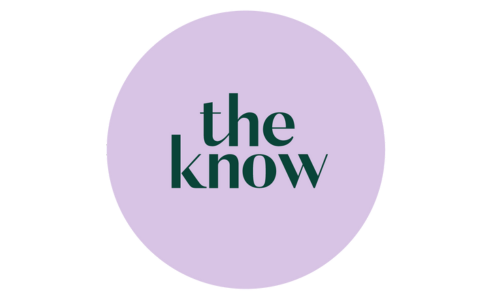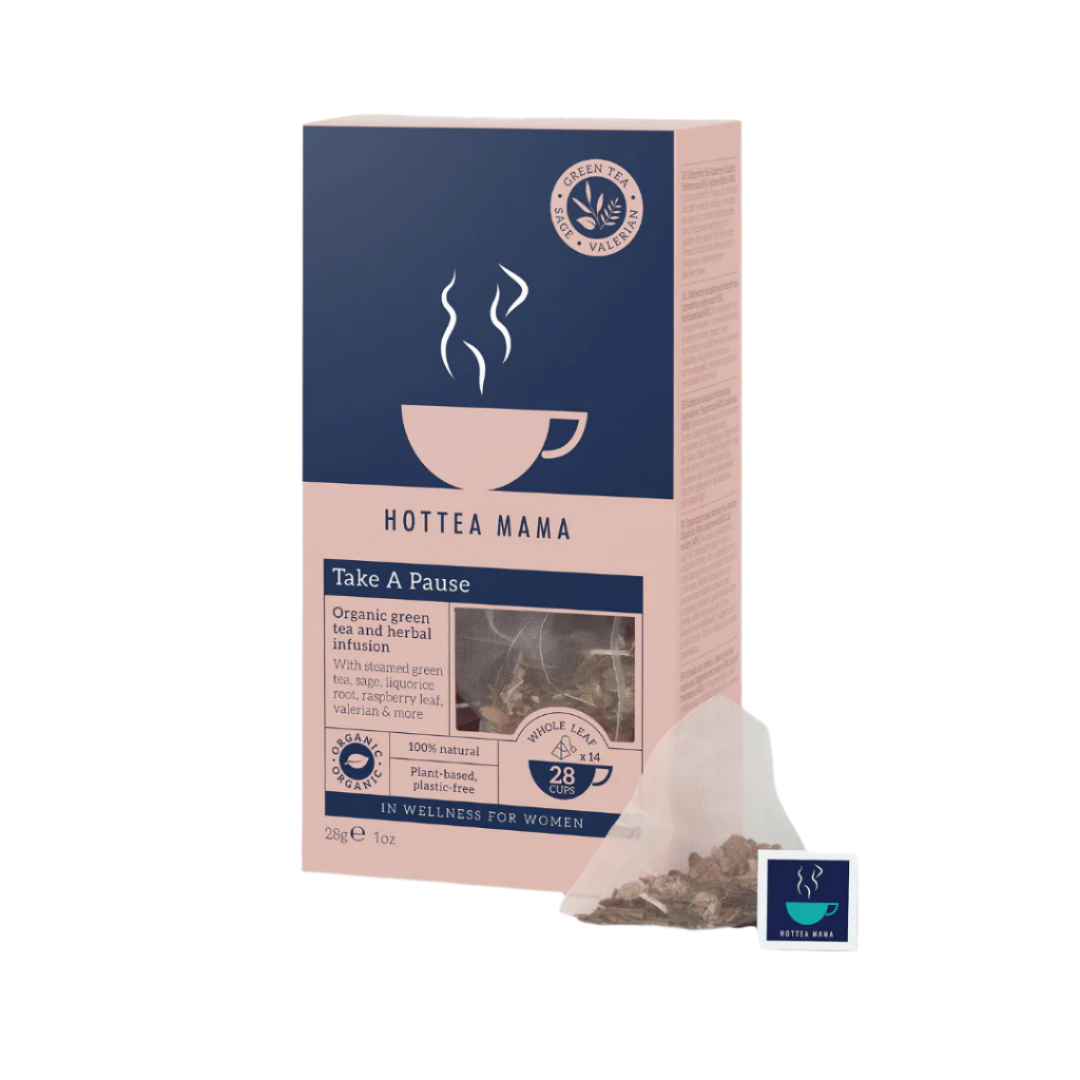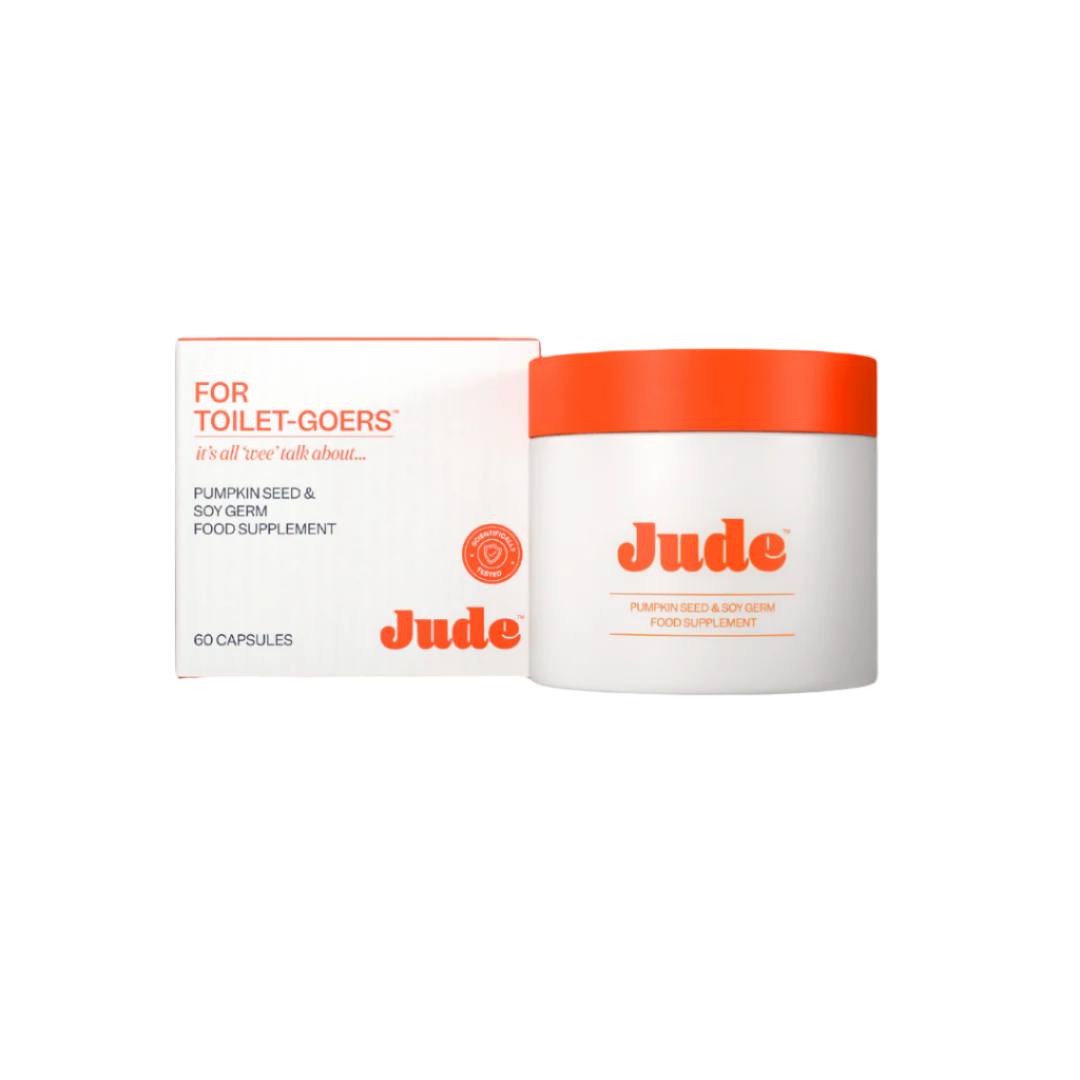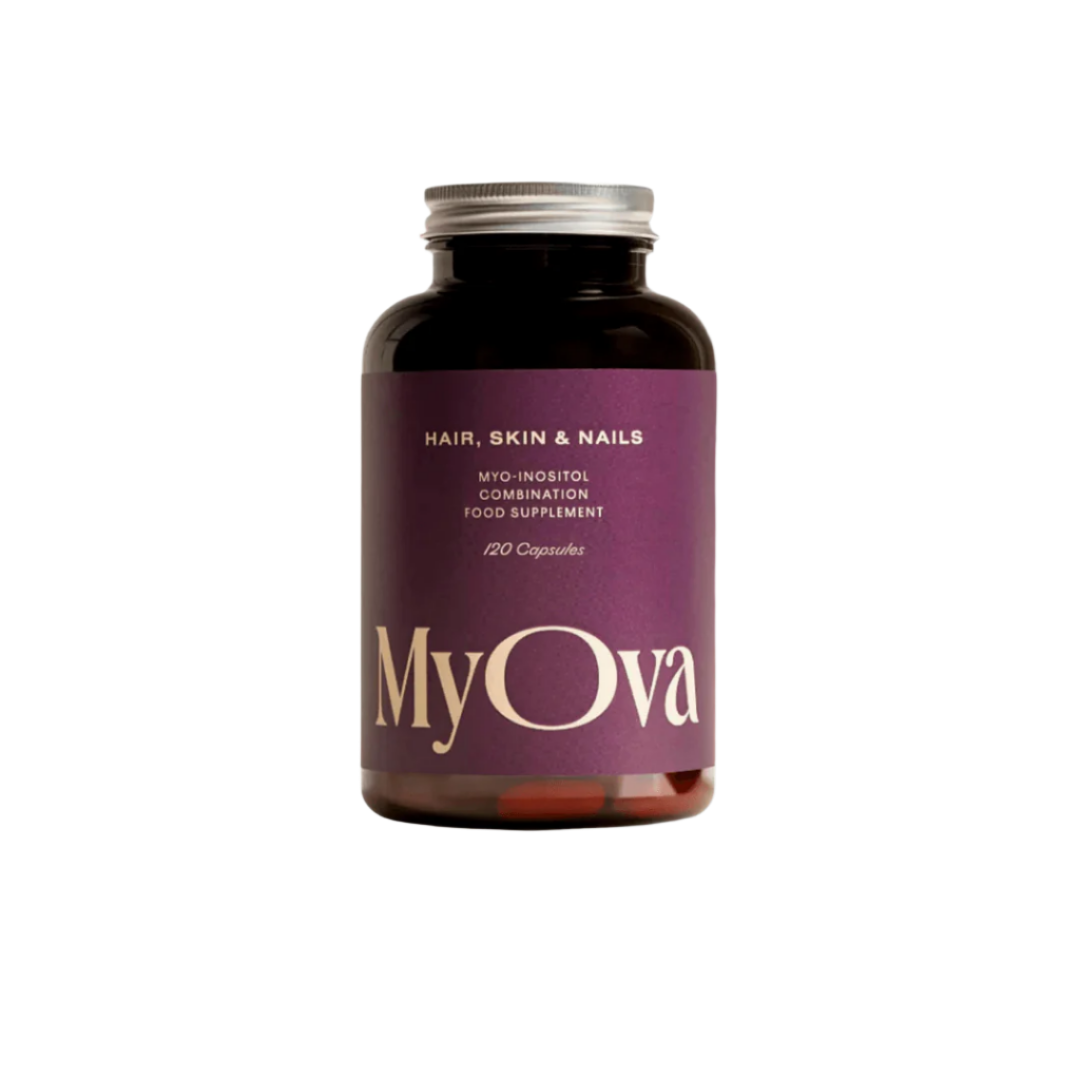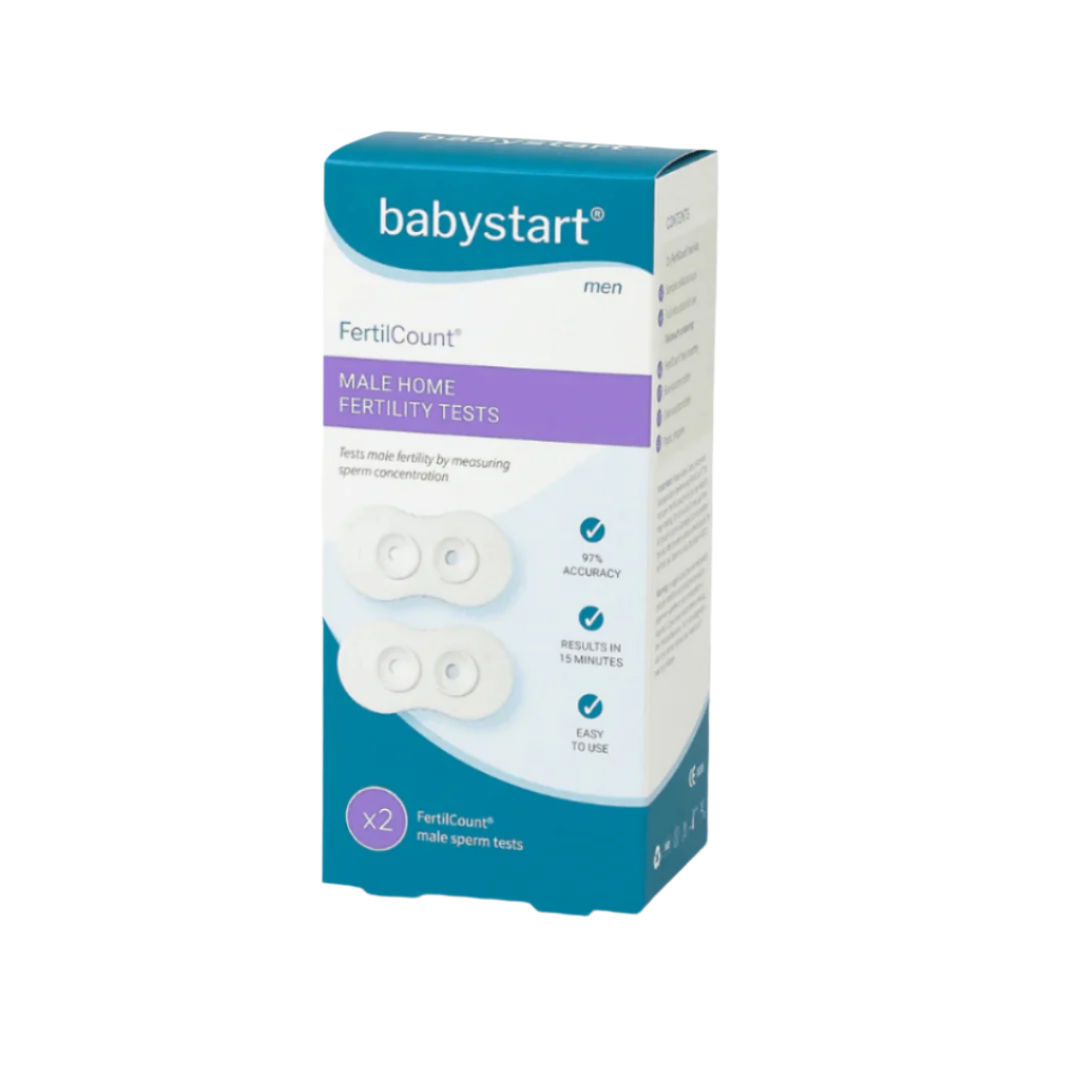The Journal
What Every Woman Should Know About Perimenopause
Let’s Talk About Perimenopause (Before It Sneaks Up on You) Perimenopause isn’t something we learn about in school. It’s not usually dinner party conversation. And for most women, it doesn’t come with a heads-up. One day your cycle’s doing its usual thing, and the next, things feel... off. At femme, we believe knowledge is power – especially when it comes to your hormones. So here’s your no-nonsense guide to what actually happens during perimenopause, when it starts, and how to support your body (and mind) through the transition. First Things First: What Is Perimenopause? Perimenopause is the phase before menopause, when your hormones (mainly oestrogen and progesterone) start to fluctuate. This stage can last anywhere from a few months to over 10 years. Yep, really. It usually starts in your 40s, but for some women, changes begin in their mid-30s. Key point: You’re not in menopause until you’ve gone 12 months without a period. Until then, you’re in the perimenopausal phase – and that’s where a lot of the real shifts happen. Common Signs of Perimenopause (That Often Go Unnoticed) Every woman’s experience is different, but some of the most common symptoms include: Irregular periods (longer, shorter, heavier, or skipped) Mood changes (hello, PMS 2.0) Sleep disturbances Brain fog or forgetfulness Hot flushes or night sweats Vaginal dryness or changes in libido Increased anxiety or low mood Fatigue that hits harder than usual These symptoms are caused by fluctuating hormone levels – not because your body is “failing” or “breaking down.” When Does Perimenopause Start? There’s no universal start date, but research shows that hormonal changes can begin up to 10 years before menopause. That means some women start noticing subtle shifts in their late 30s, though the average age is early-to-mid 40s. Important: You don’t need to wait for your periods to stop before seeking support. If things feel different, it’s worth talking to your GP, especially if symptoms are affecting your quality of life. How to Support Your Body Through Perimenopause There’s no one-size-fits-all approach, but there are evidence-based ways to navigate this chapter with more ease and less stress. 1. Track Your Cycle and Symptoms Understanding your baseline helps you notice changes earlier. Apps, journals, or wearable devices (like Tempdrop) can help track patterns in sleep, mood, cycle length, and more. 2. Prioritise Sleep and Stress Management Easier said than done, we know. But sleep and stress are both closely linked to hormone regulation. Small changes like cutting back on caffeine, creating a wind-down routine, or trying mindfulness can make a real difference. 3. Nourish Yourself Properly Blood sugar stability, healthy fats, protein, and fibre are your hormone allies. You don’t need to overhaul your diet overnight – just start paying attention to what gives you energy (and what drains it). 4. Consider Supplements (If Needed) Vitamin D, magnesium, omega-3s, and B vitamins are commonly recommended during perimenopause. Always check with a healthcare professional before starting anything new – your body, your rules. 5. Get Clued Up on HRT and Other Options Hormone Replacement Therapy (HRT) is one option – and for many women, it can be life-changing. It’s not the only route, but it’s worth understanding so you can make informed decisions when the time comes. The Takeaway: Perimenopause Isn’t the End of Anything – It’s Just a New Chapter Perimenopause doesn’t mean you’re “getting old.” It doesn’t mean you’re broken. And it definitely doesn’t mean you just have to “put up with it.” This is a time to get curious about your health, not scared of it. The more you know, the more empowered you are to advocate for yourself – whether that’s at your GP’s office, in your relationships, or just with your own body. At femme, we’re here to make sure you’re not caught off guard. No drama. No doom. Just the facts, support, and tools you need to feel informed and in control.
Learn moreReserve & Renew: The Fertility Support Bundle I Wish I Had at the Start of My Journey
In this heartfelt piece, Sarah, co-founder of femme, shares her personal fertility journey and the challenges she faced navigating it alone. She introduces the Reserve & Renew Bundle, a thoughtfully curated collection of fertility-supporting products she wishes she'd had at the start - designed to empower women with insights into egg health, ovarian reserve, and ovulation tracking. With products like the proov Reserve Test, OVUM supplements, and Tempdrop™, the bundle offers essential tools to help others feel informed, supported, and less alone in their journey.
Learn moreUnderstanding Pre-Eclampsia: What You Need to Know
Pregnancy comes with plenty of questions, and sometimes a few worries too. One condition you might hear mentioned during antenatal appointments is pre-eclampsia. It sounds serious — and it can be — but with the right information and good care, it’s manageable. Here’s what you need to know. What Is Pre-Eclampsia? Pre-eclampsia is a condition that can develop during pregnancy, usually after 20 weeks. It’s linked to problems with the placenta — the organ that supplies your baby with nutrients and oxygen. The main signs are high blood pressure and protein in your urine, though other symptoms can also occur. Pre-eclampsia affects around 6% of pregnancies in the UK and ranges from mild to severe. Most women will have mild cases, and with regular monitoring, both mum and baby do well. In more serious cases, pre-eclampsia can pose risks to your health and your baby’s development, so early detection and care are really important. What Should You Look Out For? Pre-eclampsia doesn’t always come with obvious symptoms, especially in the early stages — which is why routine blood pressure and urine checks at antenatal appointments are so important. But there are signs to be aware of. Let your midwife or GP know if you experience any of the following: Persistent headaches that don’t go away with paracetamol Blurred vision or seeing flashing lights Swelling, especially in your face, hands or around your eyes (a bit of swelling is normal in pregnancy, but sudden or severe swelling should be checked) Pain just below the ribs, particularly on the right side Sudden weight gain (caused by fluid retention) Feeling generally unwell, or more tired than usual Remember — you’re never wasting anyone’s time by raising concerns. What Can You Expect From Your Midwife or GP? In the UK, you should have regular checks during pregnancy to monitor for pre-eclampsia. This includes: Blood pressure checks at every appointment Urine tests to look for protein Blood tests if there are concerns If pre-eclampsia is suspected, you’ll likely be referred for further assessment at hospital. This doesn’t necessarily mean an emergency — it’s just about monitoring things more closely. Depending on the severity, you might need: More frequent appointments or scans Medication to lower your blood pressure Admission to hospital for monitoring in more serious cases Early delivery if your health or your baby’s health is at risk Most women with pre-eclampsia go on to deliver healthy babies, often with a bit of extra support and planning. What Causes It? The exact cause of pre-eclampsia isn’t fully understood, but it’s thought to relate to how the placenta develops. Some factors that increase your risk include: First pregnancy Family history of pre-eclampsia Having high blood pressure or kidney problems before pregnancy Being over 40 Having a BMI of over 35 Carrying twins or more If you’re at higher risk, your midwife might recommend taking low-dose aspirin from 12 weeks of pregnancy to help reduce your chances of developing the condition. A Final Reassurance Pre-eclampsia can sound daunting, but the key message is this: you’re not expected to spot or manage it alone. That’s why regular antenatal care is so important — your midwife is there to check for signs and act early if anything seems off. Trust your instincts, and speak up if something doesn’t feel right. You deserve to be listened to and supported — and the earlier a concern is picked up, the better the outcome for you and your baby. References NHS. Pre-eclampsia. Available at: https://www.nhs.uk/conditions/pre-eclampsia Tommy’s. What is pre-eclampsia? Available at: https://www.tommys.org/pregnancy-information/pregnancy-complications/pre-eclampsia NICE. Hypertension in pregnancy: diagnosis and management (NG133). Available at: https://www.nice.org.uk/guidance/ng133
Learn moreMale Infertility: Why We Need to Talk About It
When we talk about fertility, the focus is almost always on women; their age, their cycles, their eggs. But here’s the thing: in up to 50% of infertility cases, male factor infertility is involved. It’s not just a "women’s issue". It’s a people issue; and yet, we don’t talk about it enough. At femme health, we’re all about open, honest conversations about reproductive health — and that includes shining a light on the silent struggles men are facing too. So let’s get into it: what is male infertility, why is there so little awareness, and how are toxic masculinity and social pressures keeping men in the dark? So... What Actually Is Male Infertility? Male infertility is when a man has a reduced chance of getting a partner pregnant. It’s often linked to problems with sperm — whether that’s low sperm count, poor motility (movement), shape (morphology), or issues with how sperm are produced or delivered. It can also be caused by things like: Hormonal imbalances Infections or past injuries Varicocele (enlarged veins in the testicles) Lifestyle factors — think smoking, alcohol, high stress, poor diet, or even heat exposure from things like saunas or laptops on laps Here’s the bit most people don’t know: global sperm counts have dropped by more than 50% in the last 40 years. Yet somehow, conversations about fertility rarely include men. The Awareness Gap: Why Aren’t We Talking About This? There’s still a widespread belief — even among healthcare professionals — that fertility is mostly a “women’s problem”. This means men are often tested later (if at all), get fewer resources, and feel like they’re not even in the fertility conversation. This lack of awareness leads to: Delayed diagnosis and treatment Frustration and confusion Mental health struggles that go unnoticed Couples blaming themselves or each other In short? It’s not good for anyone. The Toxic Masculinity Factor Let’s talk about the elephant in the room: toxic masculinity. That outdated idea that men have to be stoic, strong, hypersexual, and basically emotionless. Male fertility issues often get tied up with feelings of shame, emasculation, or “not being man enough.” And because fertility is so wrapped up in ideas of virility and strength, men can feel like talking about it threatens their identity. We hear phrases like: “Shooting blanks” “He’s not a real man” “Just keep trying” None of that helps. In fact, it makes things worse — pushing men into silence and stopping them from getting the help they need. The Pressure to Be Fine Even when men do know there’s a problem, many feel they’re not “allowed” to talk about it. They’re expected to be the calm, supportive partner while their own emotions take a backseat. There’s pressure to: Stay strong Not cry “Fix it” without asking for help Keep everything bottled up This emotional suppression isn’t just unhealthy — it’s unsustainable. Fertility struggles can affect confidence, relationships, and mental health. And when men feel like they can’t speak up, they suffer alone. So What Can We Do About It? We need to change the narrative. Male infertility isn’t a rare, embarrassing anomaly — it’s a common medical issue, and one that deserves just as much attention, empathy, and support as female infertility. Here’s how we move forward: Start the conversation — openly, and without judgment Include men in fertility education from the beginning Challenge harmful language and stereotypes Offer mental health support tailored for men Encourage testing early, not as a last resort And most of all, we need to remind people that fertility struggles are not a personal failure — they’re a health issue. Final Thoughts Male infertility is real. It’s common. And it deserves to be taken seriously. The sooner we can ditch the shame and start talking about it, the better off everyone will be — men, women, partners, and future families included. At femme health, we believe in breaking taboos, busting myths, and creating space for all reproductive health conversations — and that includes the ones we haven’t been having enough of. Let’s keep talking.
Learn moreHow Your Menstrual Cycle Affects Your Mental Health
Introduction Your menstrual cycle doesn’t just affect your body – it plays a major role in your mental health, too. Hormonal fluctuations throughout the month can lead to shifts in mood, energy levels, anxiety, and focus. Understanding the link between your menstrual cycle and mental health can help you feel more in control, supported, and empowered. 1. The Menstrual Cycle and Hormonal Changes Your menstrual cycle is divided into four key phases: menstrual, follicular, ovulation, and luteal. Each phase brings changes in hormone levels, particularly oestrogen and progesterone, which directly influence brain chemistry. Menstrual Phase (Days 1–5): Hormones are at their lowest, which can lead to fatigue, low mood, and irritability. Follicular Phase (Days 6–14): Rising oestrogen can boost mood, energy, and cognitive function. Ovulation (Around Day 14): A surge in oestrogen and luteinising hormone may increase confidence and libido. Luteal Phase (Days 15–28): Rising progesterone and declining oestrogen can lead to mood swings, anxiety, and premenstrual syndrome (PMS). 2. Mental Health Symptoms by Cycle Phase Mood Swings: Especially common in the luteal phase due to hormone withdrawal. Anxiety: Fluctuating progesterone levels may heighten anxiety sensitivity. Depression: Low oestrogen levels during menstruation can lower serotonin, a mood-regulating neurotransmitter. Brain Fog: Hormonal changes can impair focus and mental clarity, particularly during PMS. 3. What is PMDD? Premenstrual Dysphoric Disorder (PMDD) is a severe form of PMS that affects 3–8% of menstruating individuals. It includes intense emotional and physical symptoms such as depression, irritability, and tension during the luteal phase. If your cycle is consistently impacting your mental health, speak to a healthcare provider about PMDD or other hormonal mood disorders. 4. How to Support Your Mental Health Through Your Cycle Track Your Cycle: Use an app or journal to monitor symptoms and identify patterns. Eat Nutrient-Rich Foods: Support hormone balance with foods rich in B vitamins, magnesium, and omega-3s. Exercise Regularly: Gentle movement like walking or yoga can boost endorphins and reduce anxiety. Prioritise Sleep: Rest is crucial for hormonal regulation and emotional resilience. Consider Supplements: Adaptogens and nootropics, like magnesium or lion’s mane, may help support mood and cognitive function. Always consult a health professional before starting anything new. Conclusion Your mental health and menstrual cycle are deeply connected. By tuning into your body and recognising how hormonal shifts affect your mind, you can create a more compassionate and informed approach to self-care. Remember: what you feel is real, and support is available.
Learn moreThe Power of Preconception and Postnatal Nutrition: Setting the Foundation for Fertility and Beyond
Nutrition plays a vital role in reproductive health—before, during, and after pregnancy. In this comprehensive guide, Chloe Dymond Young (DipNT, mBANT, IBCLC, Nc) explores how the First 1,000 Days of Life shape long-term wellbeing for both mother and baby. From protecting egg quality and building nutrient reserves, to postpartum recovery and hormonal balance—this article offers practical, evidence-based insights to support every stage of the fertility and pregnancy journey.
Learn moreThe Rise of At-Home Hormone Testing in the UK: What You Need to Know
Over the past few years, at-home hormone testing has surged in popularity in the UK. Once reserved for clinical settings, hormone tests are now widely available for home use, offering greater accessibility and convenience. But how do these tests work, what are their benefits, and what should you consider before committing to one? Why Is At-Home Hormone Testing on the Rise? Increased Awareness – More people are recognising the role hormones play in their overall health, from fertility to menopause and general well-being. Convenience – Home testing eliminates the need for GP appointments and long waiting times, allowing people to test on their own schedule. Personalised Health – With a rise in personalised medicine, many individuals are turning to home testing to better understand their bodies and make informed health choices. Advancements in Technology – Improvements in diagnostic testing mean at-home kits can now deliver accurate and reliable results with just a finger-prick blood test or saliva sample. Features and Benefits of At-Home Hormone Testing ✅ Easy Sample Collection – Most tests require a small blood sample (finger prick) or saliva, which can be collected in minutes.✅ Wide Range of Hormone Panels – Tests are available for fertility hormones (oestrogen, progesterone, FSH, LH), stress hormones (cortisol), thyroid function, and menopause indicators.✅ Quick Results – Many companies provide digital results within days, often with expert explanations.✅ Greater Autonomy – Testing at home allows individuals to take charge of their health without navigating NHS waitlists.✅ Potential Cost Savings – While private healthcare hormone testing can be expensive, home test kits may be a more affordable alternative. What to Consider Before You Commit 🔹 Accuracy & Reliability – Not all tests are created equal. Look for providers that use accredited labs with high testing standards.🔹 Clinical Support – Some companies offer follow-up consultations with healthcare professionals, while others just provide raw results. Choose a test with adequate support if you need help interpreting your results.🔹 Timing & Consistency – Hormone levels fluctuate throughout the day and menstrual cycle. Make sure you take the test at the recommended time for accurate readings.🔹 Data Privacy – Consider how your data is stored and whether the company shares results with third parties.🔹 Not a Replacement for Medical Advice – Home testing is useful for self-monitoring but should not replace professional medical guidance, especially for diagnosing conditions. Final Thoughts At-home hormone testing offers a convenient and accessible way to monitor your health, particularly for those experiencing menstrual irregularities, fertility concerns, or menopausal symptoms. However, it’s important to choose a reputable provider, understand the limitations of home testing, and consult a healthcare professional when needed. Would you try at-home hormone testing? Let us know your thoughts! 🚀
Learn moreHow Your Menstrual Cycle Affects Your Mental Health
Introduction Your menstrual cycle doesn’t just affect your body – it plays a major role in your mental health, too. Hormonal fluctuations throughout the month can lead to shifts in mood, energy levels, anxiety, and focus. Understanding the link between your menstrual cycle and mental health can help you feel more in control, supported, and empowered. 1. The Menstrual Cycle and Hormonal Changes Your menstrual cycle is divided into four key phases: menstrual, follicular, ovulation, and luteal. Each phase brings changes in hormone levels, particularly oestrogen and progesterone, which directly influence brain chemistry. Menstrual Phase (Days 1–5): Hormones are at their lowest, which can lead to fatigue, low mood, and irritability. Follicular Phase (Days 6–14): Rising oestrogen can boost mood, energy, and cognitive function. Ovulation (Around Day 14): A surge in oestrogen and luteinising hormone may increase confidence and libido. Luteal Phase (Days 15–28): Rising progesterone and declining oestrogen can lead to mood swings, anxiety, and premenstrual syndrome (PMS). 2. Mental Health Symptoms by Cycle Phase Mood Swings: Especially common in the luteal phase due to hormone withdrawal. Anxiety: Fluctuating progesterone levels may heighten anxiety sensitivity. Depression: Low oestrogen levels during menstruation can lower serotonin, a mood-regulating neurotransmitter. Brain Fog: Hormonal changes can impair focus and mental clarity, particularly during PMS. 3. What is PMDD? Premenstrual Dysphoric Disorder (PMDD) is a severe form of PMS that affects 3–8% of menstruating individuals. It includes intense emotional and physical symptoms such as depression, irritability, and tension during the luteal phase. If your cycle is consistently impacting your mental health, speak to a healthcare provider about PMDD or other hormonal mood disorders. 4. How to Support Your Mental Health Through Your Cycle Track Your Cycle: Use an app or journal to monitor symptoms and identify patterns. Eat Nutrient-Rich Foods: Support hormone balance with foods rich in B vitamins, magnesium, and omega-3s. Exercise Regularly: Gentle movement like walking or yoga can boost endorphins and reduce anxiety. Prioritise Sleep: Rest is crucial for hormonal regulation and emotional resilience. Consider Supplements: Adaptogens and nootropics, like magnesium or lion’s mane, may help support mood and cognitive function. Always consult a health professional before starting anything new. Conclusion Your mental health and menstrual cycle are deeply connected. By tuning into your body and recognising how hormonal shifts affect your mind, you can create a more compassionate and informed approach to self-care. Remember: what you feel is real, and support is available.
Learn moreMaternal Mental Health in the UK: What’s Working, What’s Not, and How We Can Do Better
Maternal mental health in the UK is a growing concern. Explore what’s working, what still needs to change, and how we can improve care for new and expectant mothers across the UK.
Learn more
In The Press

Simplify Your Fertility Tracking with Tempdrop
Take the guesswork out of cycle tracking with Tempdrop, the smart wearable thermometer that fits seamlessly into your routine. Designed to learn your unique patterns, it provides accurate, reliable insights without the hassle of early wake-ups or daily charts.














